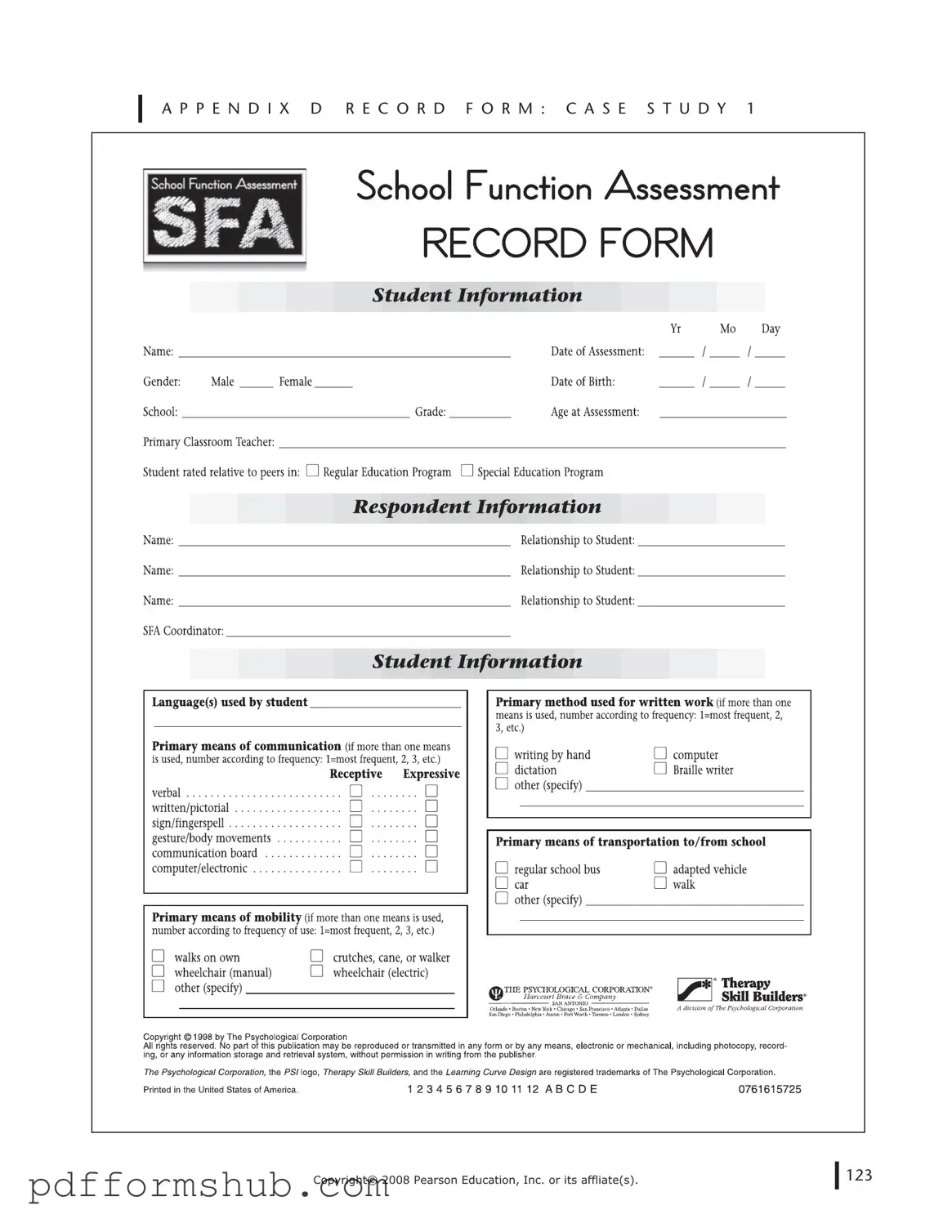Fill in Your School Function Assessment Form
The School Function Assessment form is a tool designed to evaluate a student's performance in various school-related activities. It helps educators and parents understand how a child's abilities impact their participation in school settings. Completing this form can provide valuable insights into a child's needs and strengths, so take a moment to fill it out by clicking the button below.
Customize Form

Fill in Your School Function Assessment Form
Customize Form

Customize Form
or
Free PDF Form
Short deadline? Complete this form now
Complete School Function Assessment online without printing hassles.